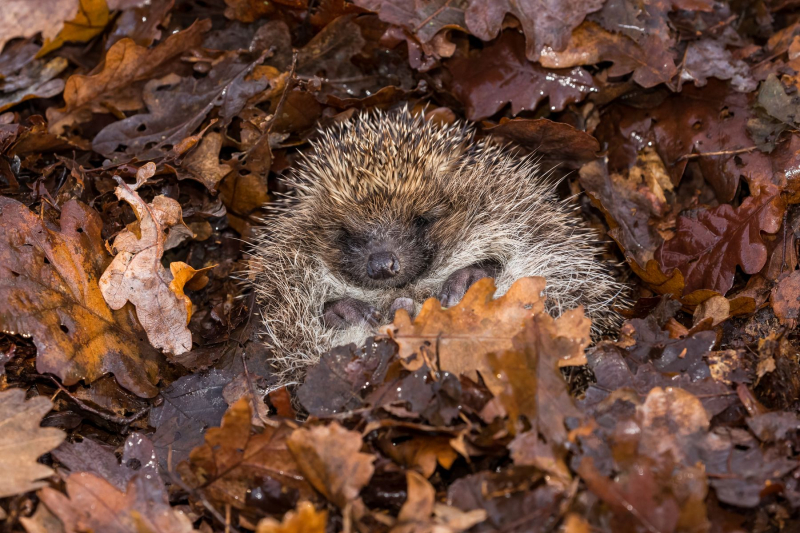Hedgehog

A Hedgehog is a spiny mammal belonging to the eulipotyplan family Erinaceidae's subfamily Erinaceinae. In addition to New Zealand by importation, there are seventeen species of hedgehogs spread over five genera in various regions of Europe, Asia, and Africa. Hedgehogs are not a native species in either Australia or the Americas. Amphechinus, an extinct genus, was once found in North America.
Hedgehogs are omnivorous even though they are generally categorized in the disbanded order Insectivora. They eat berries, melons, watermelons, snails, frogs, toads, bird eggs, carrion, mushrooms, grass roots, and insects. After hibernating, berries make up a large portion of an Afghan hedgehog's diet in the early spring. A hedgehog's body temperature can drop to roughly 2 °C (36 °F) while it is hibernating. The body temperature of the animal rises from 2 to 5 °C (36 to 41 °F) to its regular 30-35 °C (86 to 95 °F) body temperature when it emerges from hibernation. They have special cells that release heat 20 times faster than white cells. If temperatures drop too low, their heartbeat picks up to produce more heat, which wakes them up briefly before they fall asleep again.











